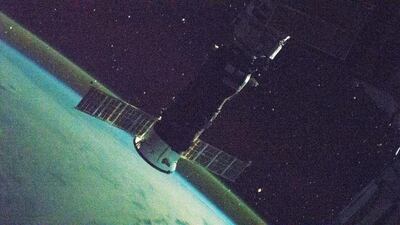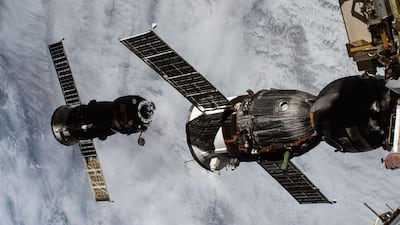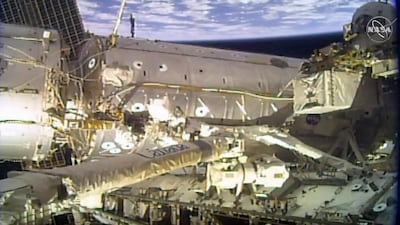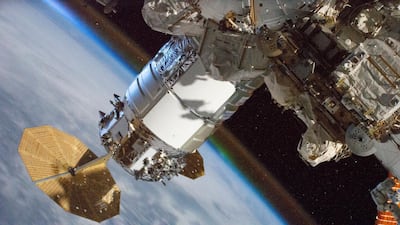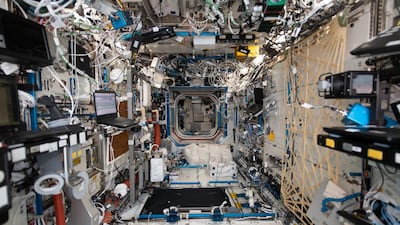The UAE is exploring a deal with international partners for its second mission to the International Space Station.
The process of securing a mission is complex and it would have to be one that “brings value to the Emirati space programme and the partner’s space programme", said Salem Al Marri, head of the UAE Astronaut Programme.
Mr Al Marri, also deputy director general of the Mohammed bin Rashid Space Centre, was speaking exclusively to The National at the Global Space Exploration Conference on Tuesday in St Petersburg, Russia.
The event, from Monday until Friday, brings together engineers, scientists, entrepreneurs, educators, space agency representatives and policymakers to discuss the future of space exploration.
Maj Hazza Al Mansouri in 2019 became the first Emirati to reach space and spent eight days on the International Space Station.
A year later, Sheikh Mohammed bin Rashid, Vice President and Ruler of Dubai, said more Emiratis would be sent into space this decade.
“We are in negotiations," Mr Al Marri said. "We’re always discussing Emirati space missions with our partners and finding ways to send the next Emirati to the ISS.
"We’ll announce the [next] mission in time and when we’re ready."

For its first mission, the UAE collaborated with Russian space agency Roscosmos to send Maj Al Mansouri into space on board a Soyuz rocket.
Since then, a commercial space model has revived America's programme, with astronauts now travelling on SpaceX rockets and space agency Nasa planning to send more astronauts to the Moon.
The UAE expanded its partnership with Nasa in the past year.
It signed the Artemis Accords, an international treaty that outlines peaceful Moon exploration, and is training four astronauts at the Johnson Space Centre in Houston, which would qualify them for Nasa-led space missions in future.
Mr Al Marri said it was "in the best interests of the UAE to work with Russia and the US" on space exploration efforts.
He said the UAE’s participation in the conference in Russia meant its representatives could talk to other heads of space agencies to see how the country could further take part in global space exploration, including to the Moon and Mars.
“We’re also having deeper discussions on this global exploration roadmap and where the UAE can be placed in that,” Mr Al Marri said.
Reaching for the Moon
China and Russia are calling on other nations to join their International Lunar Research Station.
Mr Al Marri said the UAE would be open to working with other partners on Moon and Mars missions.
“We work with everybody," he said. "For our first human spaceflight programme, the first phase was with Russia.
"For the second phase, we're training now with Nasa. Regarding the Moon, it's the same thing as well."
Other emerging space nations are also trying to secure deals to send their astronauts to the ISS.
Turkey, which announced its ambitious 10-year space programme on the same day the UAE reached Mars with its Hope probe, is planning to launch its first astronaut into space.
“We’re negotiating with our partners and their training will begin soon once it has been finalised,” Turkish space chief Serdar Huseyin said at the conference.
Mr Huseyin said Turkey planned to land on the Moon's surface using a lander built by its own engineers.
